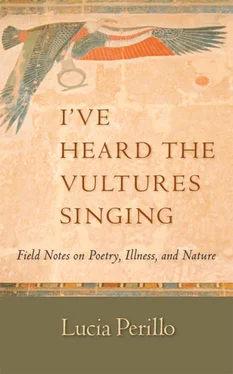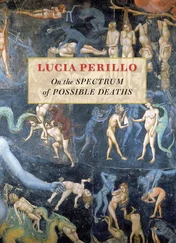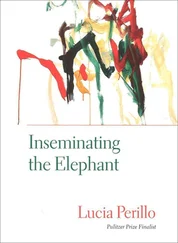Like most people, I apportion my interest in the natural world according to formulae I’m not consciously aware of, formulae in which the population size of a creature has an inverse relation to that creature’s hold on my imagination. What I mean is: rare = good (though the many poems written to the common crow are an exception, probably because they appeal to us in a libidinous way — the ancient Greeks used the phrase going to the crows where we would say going to the devil ).
Pretty does not necessarily equal good. There is a great deal of beauty in the Canada goose’s face, the bird that’s been rounded up and gassed at Costa del Bum because it soiled all the Jehovah’s-Witness-pamphlet grass. I still see gangs of lazy mallards there, the males with their stunning green heads. But I skip on, as soon as I’ve got the name— there’s a mallard, what next? And, as soon as I’ve found that bird, what next?
Here are all the birds whose sightings numbered over a thousand on the Christmas Bird Count:
Canada Goose 2,358 American Widgeon 5,546 Mallard 2,281 Northern Pintail 1,078 Surf Scoter 2,120 Bufflehead 2,346 Dunlin 2,356 Glaucous-winged Gull 1,824
Glaucous-winged Gull × Western Gull (hybrid) 1,318 Crow 2,050 Golden Crowned Kinglet 1,173 American Robin 1,414 European Starling 5,307 Dark-eyed (Oregon) Junco 1,382 Red-winged Blackbird 1,353 Pine Siskin 3,515
What stumps me about myself is how — even now, midway through a season of trying to prick up my powers of attention — how oblivious I am. To kinglets, siskins, widgeons: to all the common birds I’ve missed.
Conversation with Gordon the Audubon Guy, 1/17
Me: Okay. I found the checklist and figured out that in all likelihood the big gulls I’m seeing are either glaucous-winged gulls or glaucous-winged/western hybrids, but I’m not sure how people are making this distinction. I think the hybrids are darker on the wing edge? And the herring gulls look pretty similar, but now I see that the others have a white spot visible on the mantle when the bird is sitting, have I got that right? And there are two other gulls that are common, but from the book I can tell they’re smaller, the mew gull and the ring-billed and the ring on the bill of the mew is a little less pronounced, but is there a trick to telling the size differential if you don’t have the big gull and the little one side by side?
When I finally stop talking, Gordon answers: Here’s where you’re getting over my head.
Maybe the problem with gulls stems from the fact that they have very little mythic dimension. In my book of Indian legends from the Pacific Northwest, there’s no mention of them. The Greeks and the Romans give them short shrift when compared with glamour-birds like nightingales. In his play The Birds , Aristophanes makes just one brief mention of the gull, linking it to Hercules, who is made out to be a foolish glutton.
In this coastal town the gulls soar everywhere, crapping on our cars. We too associate them with gluttony, because of the way they raid the dumpsters at the fast-food joints, and even their genus name, Larus , comes from a Latin word that means “ravenous seabird.”
When the salmon are running, gulls take up residence in the woods, where they feed on salmon carcasses. And here they become especially frightening because they are so far out of their shoreline context; instead, they flap and squawk between the limbs of cedars. They swoop past at such low altitude that you can stare into their eyes without lifting up your head. How frightening to see the ravenous bird from such an unaccustomed angle, at such an unaccustomed proximity, in such an unaccustomed place.
Field Note from 1/18
The gulls are gathered on the warehouse roof, but, before I can circumnavigate the crotch of the bay, the shadows start to lie flat on the ground. Suddenly, the gulls fly off to a spot on the other side of the bay — where I just came from — that’s still sunlit. By the time I cross back over, all I can see are silhouettes. Black shapes all identical.
Late in her life, Dickinson revisited the subject of hope in poems that echo her famous early poem. “Hope is a strange invention— / A patent of the Heart”—a stiffer, more mechanical depiction than the hope she once deposited in the breast. A short while later comes a poem in which “Hope is a subtle Glutton” who “feeds upon the fair.” Now hope is ravenous, like the gulls, and we are being eaten alive, as in my fantasy where I say: take me, take me. It’s the fantasy of a sudden, cut-off end.
When Gordon the Audubon guy gives me the e-mail address of Bill — who’s supposed to be the go-to guy on bird identification in this town — the electronic ether never answers. Then I find on my shelf an old book from the 1950s called Our Amazing Birds: Little Known Facts about Their Private Lives. There’s a glitch in the printing, though, that leaves the page on gulls a blank. The strange synchronicities start to build, spreading to Emily Dickinson even. One of her last bird poems goes:
If I should see a single bird
[remaining text unknown]
Note how, even with the missing line, the couplet sustains Dickinson’s characteristic 4 beat/3 beat meter.
Field Note from 1/24
I’ve tracked down a book about the Swantown birds, produced from several years of censuses made by a local ornithologist who restricted his counts to “birds floating or just taking flight from the water, except gulls” on the grounds that identifying the gulls would “suck up too much time.”
Here I am, watching them float in the bay and stand on the pilings, and I think I’ve nailed down the basics. Large gull with pink legs, you make your call based on the darkness of the wings. If the field marks are at odds, call it a hybrid. Call the smaller gulls mews unless you see a distinct ring around their bills. Forget the juveniles because you’ll never get them straight.
But at least half the gulls are drab brown juveniles. With any luck, I can guess the names of maybe half the rest. This means my best chance of success is 1 in 4. Probable outcome: 75 percent failure. I have to live with that.
Four years after we got married, Jim and I saw The Lotus leaking oil one day when we paddled by in our kayak. It was slowly sinking, and we helped the Department of Ecology set up a ring of yellow buoys around it. This is the kind of occurrence that seems ripe for metaphor — the wedding boat sinking, the two of us saving the environment from contamination. The Lotus was eventually sold, then vanished — another cut-off end.
Field Note from 2/1
I’ve got a loaf of dark rye bread that’s been sitting on the kitchen counter with a 1/11 expiration date, and I’m at Costa del Bum, tearing the slices into scraps. Half the gulls float in the water and half sit on the streetlamps. At first they ignore the scraps I throw until the crows start moving in, which cues the gulls to my attempt to lure them. Then it’s just a matter of continuing to fling my bits and crusts, and when I roll backward a horde of gulls, in their white helmets, crowds the cinder path. Suddenly, I can see how the situation could become dangerous if they decided to challenge me for the bread.
Clear, though, are their gradations of colors, the fair wings and darker ones, the mismatched tails of the hybrids. I don’t even need binoculars to discern the spots on their beaks. The ashy juveniles come closest, maybe a sign of their stupidity. Further back, the adults cry like squeaky hinges. They all scare off when two women come along with a dog, who craps unabashedly on the grass where I’d lured my throng, and the women move on without picking up their remnant.
Читать дальше











![Various - Birds and Nature, Vol. 12 No. 5 [December 1902]](/books/745517/various-birds-and-nature-vol-12-no-5-december-thumb.webp)
![Various - Birds and Nature Vol. 11 No. 2 [February 1902]](/books/745533/various-birds-and-nature-vol-11-no-2-february-1-thumb.webp)